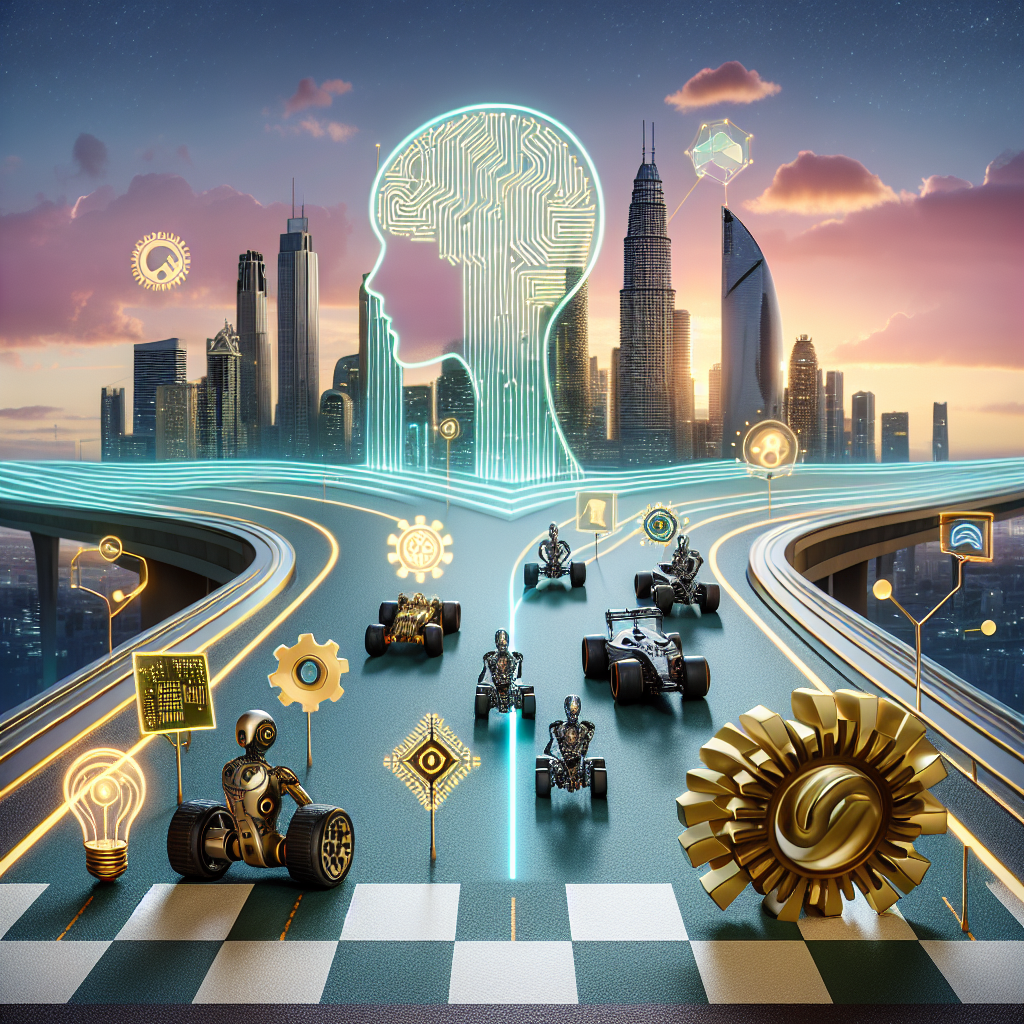The Race for AGI: Who Will Lead the Charge in Developing Superintelligent Machines?
Artificial General Intelligence (AGI) is a concept that has captured the imaginations of scientists, researchers, and technology enthusiasts around the world. AGI refers to a form of artificial intelligence that possesses the ability to understand, learn, and adapt to its environment in a way that mirrors human intelligence. While current AI systems are capable of performing specific tasks with superhuman accuracy, they lack the general intelligence and versatility of the human mind.
The development of AGI has the potential to revolutionize virtually every aspect of society, from healthcare and education to finance and transportation. However, the road to achieving AGI is fraught with challenges, including ethical concerns, technological limitations, and the potential for unintended consequences.
In this article, we will explore the race for AGI and examine the key players in the quest to develop superintelligent machines. We will also discuss the potential implications of AGI for society and address some frequently asked questions about this groundbreaking technology.
The Key Players in the Race for AGI
Several organizations and research institutions are leading the charge in developing AGI. These players are at the forefront of cutting-edge research and innovation, pushing the boundaries of what is possible in the field of artificial intelligence. Some of the key players in the race for AGI include:
1. OpenAI: Founded in 2015 by Elon Musk and other technology luminaries, OpenAI is a non-profit artificial intelligence research lab dedicated to developing safe and beneficial AGI. OpenAI has made significant advancements in the field of AI, including the development of GPT-3, one of the most powerful language models in existence.
2. DeepMind: Acquired by Google in 2014, DeepMind is a leading research lab focused on artificial intelligence and machine learning. DeepMind has achieved numerous breakthroughs in AI, including the development of AlphaGo, a program that defeated the world champion in the ancient game of Go.
3. IBM: IBM has been a pioneer in the field of artificial intelligence for decades, with its Watson supercomputer gaining widespread recognition for its ability to understand natural language and process vast amounts of data. IBM continues to invest heavily in AI research and development, with a focus on creating more intelligent and versatile AI systems.
4. Microsoft: Microsoft is another key player in the race for AGI, with its Azure AI platform offering a wide range of AI services and tools for developers and businesses. Microsoft has also made significant investments in AI research, with a focus on developing more advanced and capable AI systems.
5. China: China has emerged as a major player in the field of artificial intelligence, with the Chinese government investing billions of dollars in AI research and development. Chinese companies such as Baidu, Alibaba, and Tencent are also heavily involved in AI research, with a focus on developing AI systems that can compete on a global scale.
The Implications of AGI for Society
The development of AGI has the potential to bring about profound changes in society, both positive and negative. On the positive side, AGI could revolutionize industries such as healthcare, finance, and transportation, leading to more efficient and effective services for consumers. AGI could also help address some of the greatest challenges facing humanity, such as climate change, disease, and poverty.
However, the rise of AGI also raises serious ethical and societal concerns. One of the biggest concerns is the potential for AGI to outperform and even surpass human intelligence, leading to a scenario known as the “singularity.” In this scenario, AGI could rapidly accelerate its own development, leading to unpredictable and potentially dangerous outcomes.
Another concern is the impact of AGI on the job market, with some experts predicting that AGI could lead to widespread unemployment and economic disruption. AGI could also raise thorny ethical questions, such as who should be responsible for the actions of intelligent machines and how to ensure that AGI is used for the benefit of humanity.
Frequently Asked Questions about AGI
Q: What is the difference between AGI and narrow AI?
A: Narrow AI refers to AI systems that are designed to perform specific tasks, such as image recognition or language translation. AGI, on the other hand, refers to AI systems that possess the ability to understand, learn, and adapt to their environment in a way that mirrors human intelligence.
Q: When will AGI be achieved?
A: The timeline for achieving AGI is uncertain, with some experts predicting that AGI could be developed within the next few decades, while others believe it could take much longer. The development of AGI will depend on a wide range of factors, including advances in technology, research funding, and ethical considerations.
Q: What are the potential risks of AGI?
A: The development of AGI raises a number of potential risks, including the possibility of unintended consequences, such as the misuse of AGI for malicious purposes. AGI could also lead to job displacement, economic disruption, and ethical dilemmas related to the use of intelligent machines.
Q: How can we ensure that AGI is developed safely and ethically?
A: Ensuring the safe and ethical development of AGI will require collaboration between researchers, policymakers, and industry stakeholders. It will be important to establish clear guidelines and regulations for the development and deployment of AGI, as well as to invest in research that explores the ethical implications of intelligent machines.
In conclusion, the race for AGI is one of the most exciting and transformative developments in the field of artificial intelligence. While the development of AGI holds great promise for society, it also raises significant ethical, societal, and technological challenges. By working together to address these challenges, we can ensure that AGI is developed in a way that benefits humanity and safeguards our future.

